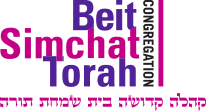
Covenantal Listening
וַיְדַבֵּ֣ר מֹשֶׁ֔ה לִפְנֵ֥י יְקוָ֖ק לֵאמֹ֑ר הֵ֤ן בְּנֵֽי־יִשְׂרָאֵל֙ לֹֽא־שָׁמְע֣וּ אֵלַ֔י וְאֵיךְ֙ יִשְׁמָעֵ֣נִי פַרְעֹ֔ה וַאֲנִ֖י עֲרַ֥ל שְׂפָתָֽיִם׃
Moses spoke before Hashem, saying, “Behold, the Children of Israel have not listened to me, so how will Pharaoh listen to me? And I have uncircumcised lips!
Exodus 6:12
Tradition1 teaches that words that come from the heart are the ones that can enter the heart of another – דברים היוצאים מן הלב נכנסים אל הלב, but that is only true when a person makes their heart available to listen. In Hebrew, “milah – מילה“ means both “word” and “circumcision.” Just as the foreskin must be removed in order to perfect the body, other obstructions must be eliminated for words to ultimately fulfill their highest purpose.
In general, a covenant is something that joins two parties. A prime example is the Ten Commandments which bind the Jewish People in obligation to God, and they are described as the two “Tablets of the Covenant.”2 Known as a “brit” in Hebrew – ברית, a covenant’s purpose is to unify, often by removing that which blocks the potential connection.
In the early mystical work of Sefer Yetzirah,3 the author describes “Ten Sefirot of Nothingness, b’limah – בלימה,“ with a singular covenant “ברית יחיד”, in the circumcision “מילת – milah” of the tongue and flesh. The word “b’limah – בלימה” is understood both as the lack of form4 “בלי – מה”, and as an anagram of ב’ מילה, two circumcisions.5 Just as circumcision of the body focuses desires to appropriate actions, words also give form to nebulous feelings and thoughts.
In the verse above, Moses is concerned about his ability to effectively communicate with Pharaoh, based on his lack of success with the Israelites. Rashi points out that this is one of the ten a fortiori arguments in the Torah: Moses’ message was beneficial to the Israelites, but they did not listen to him. Certainly then Pharoah, for whom Moses’ news was detrimental, would also not listen.
The Midrash6 tells us that there were four people whose extreme alienation from others led them to make themselves into gods. Pharaoh’s total self focus brought him to the illogical conclusion that “אני הוא שבראתי את עצמי – I am the one who created myself”. His solipsism prevented him from connecting to any other human. By contrast, Hillel famously teaches “If I am only for myself, what am I? – וּכְשֶׁאֲנִי לְעַצְמִי.”7 “For myself – עצמי” has a numerical value of 2108 and absolutely prevents an attachment (חבר – chebor) to anyone else, because of the total focus on one’s self.
While the logic of this argument is compelling, the context that some rabbis offer provides a broader framing for the ongoing struggle of the liberation of language. The Rabbis focus on the sounds of words, not just how they are written. Passover, פסח – Pe-sach – “the mouth that speaks”,9 is an oral centric festival that includes obligations of eating matzah, drinking four cups of wine, and telling over the story of the Exodus from Egypt (and Pharaoh – פה רע – literally the “evil mouth”).
The four cups correspond to the four different languages of redemption,10 and reinforce the tradition that the number 4, ד – daled, represents a division that needs to be overcome. It was on the fourth day of creation that the sun and the moon were created l’havdel – “ to separate between the day and the night.” Havdalah, the ceremony after the sabbath to distinguish it from the work week, has four blessings.
We find the author of the Haggadah positions the Torah in response to the individual identities of people associated with the number 4: כנגד ד’ בנים דברה תורה – the Torah is speaking in opposition to the division of the four sons. The number four also delineates the autonomous space of each person, their arbah amot – 4 cubits of personal domain. This is alluded to in the fourth letter of the Hebrew alphabet; the daled – דלת.11 The word “דלת” also means door and models the essence of its function to either close off, or to make accessible, distinct spaces. Unlike the “three ply cord,” which we are told by King Solomon12 “isn’t easily cut,” four is naturally split into two.
Moses sees neither the Israelites nor Pharaoh as being available to hear what he is saying, but for two quite different reasons. The Israelites couldn’t listen because “their spirits were crushed by cruel bondage.”13 They didn’t have the emotional wherewithal to be open to Moses. By contrast, Pharaoh’s internal preoccupation with himself made it impossible for him to pay attention to anyone else!
Moses’ concluding argument to God is that his lips aren’t circumcised, and therefore he won’t be able to properly connect to Pharaoh. Rashi explains Moses’ speech impediment in terms of a closure, as in “a blockage of the heart.”14 The power of speech is not in the veracity of the argument, or the persuasive presentation of well crafted sentences. Words are impactful when a person is open to receive the caring reflections of another. When we honor the covenant that unifies us with one heart, those feelings transcend the limitations of language and logic through the expansiveness of love.
1 See Sefer HaYashar 13:15.
2 Deuteronomy 9:9.
3 Chapter 1:3.
4 Rav Saadia Gaon.
5 Pardes Rimonim 1:1.
6 Tanchuma 8:1.
7 Avot 1:14.
8 See introduction for explanation of the numerical significance.
9 See Pri Eitz Chaim Chag HaMatzah 1.
10 Exodus 6:6-8 uses 4 different words for expressions of freedom.
11 See Torat HaRemez for an expanded approach.
12 Ecclesiastes 4:12.
13 Exodus 6:9. The word for “they – הן,” in the verse, represent the isolation in that 5 and 50 are the only two letters that don’t pair with another number to form 10 or 100, just themselves.
14 See Tzofnat Paneach “מחמת שאין יוצא מהלב כי הוא ערל לב, לכך מזה נמשך שאני ערל שפתים.”
